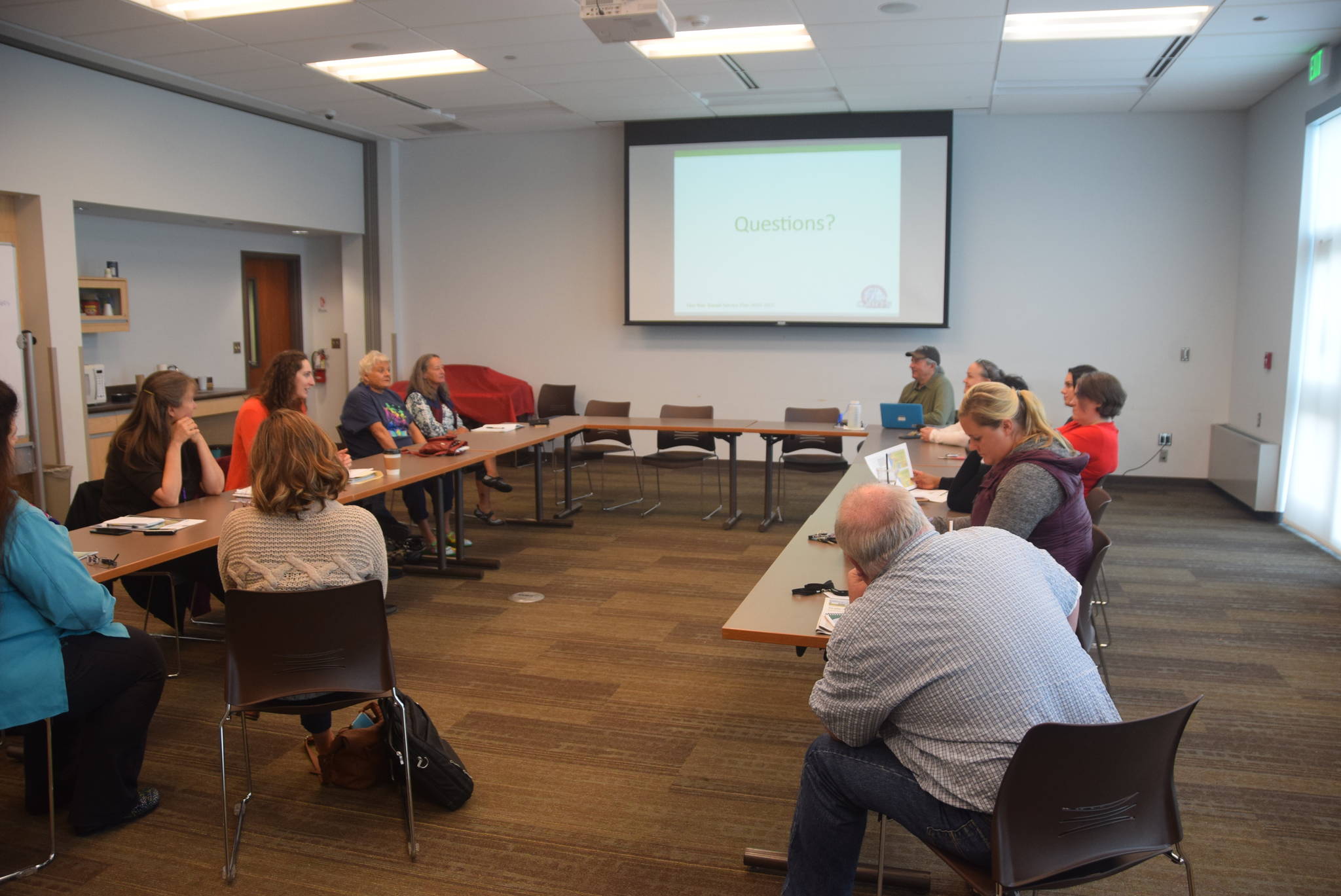The peninsula’s only provider of public transportation is looking to the future — specifically the next five years.
The Central Area Rural Transit System, also known as CARTS, recently completed its five-year transit service plan, which lays out the public transportation needs on the peninsula as well as ways that existing services can be improved.
CARTS Executive Director Jennifer Beckmann and Board President Gary Katsion presented their plan on Tuesday to a transportation workgroup that has been developing a coordinated transit plan for the entire peninsula.
The CARTS five-year plan was created with the help of a consultant team from AMMA Transit Planning, and over the last year CARTS conducted surveys of riders and stakeholders while holding several community meetings to get public feedback on the services CARTS already provides.
Currently, CARTS provides 24-hour demand-responsive public transportation to the central peninsula Monday through Friday. Riders are able to schedule a pickup in advance and pay a fare to get to their destination by either calling 907-262-8900 or by buying a punchcard online at ridecartsak.org.
Passenger fares are $2.50 per zone traveled, and there are 13 zones that make up the CARTS service area from north Nikiski to Kasilof going south and from the west side of Kalifornsky Beach Road to Sterling going east. CARTS owns a fleet of vehicles and also contracts with local private transportation companies including Alaska Cab to supplement its services.
Results from the survey showed that for about 80% of riders, CARTS is the only form of transportation available to them. About 53% said that they use CARTS to get to work, and about 66% of CARTS riders are employed while 14% are retired, 18% are disabled and about 11% are students.
The biggest complaint from respondents was the lack of service on the weekend. Until 2017 CARTS did provide weekend service, but the nonprofit had to cut back when it stopped receiving funding from the Kenai Peninsula Borough and local municipalities. Currently CARTS receives less than 5% of its funding from local sources, while about 57% comes from the federal government, 23% comes from the state and 14% comes from passenger fares.
The results of the study show that financial constraints are the biggest limiting factor in CARTS expanding its services.
Four scenarios are laid out at the end of the study, one that assumes the current reality of no local matching funds for their operating costs and three that lay out options for expansion if additional resources become available.
The first scenario — which assumes no Central Peninsula match funding — shows a total projected operating cost of $653,138. With a goal of providing 22,200 trips in a year, that averages out to a cost of about $29.42 per trip.
The first alternative scenario considers the possibility of expanding services to seven days a week, 18 hours a day, with Alaska Cab covering the remaining six hours each day. This alternative scenario also expands the service area to include the southern peninsula. In this scenario, CARTS operating budget is projected to increase to $1,128,961, but the trip goal nearly doubles to 43,900 and the cost CARTS would pay per trip goes down to about $25.71.
The second alternative scenario looks at adding a single-direction checkpoint service on top of the demand-responsive transportation currently provided by CARTS. The checkpoint service would function similarly to a bus route, with a CARTS vehicle stopping at fixed locations at a given time each day. The projected cost of this scenario is similar to the previous one at $1,129,188, with a goal of providing 52,600 rides at an average cost of $21.42 per trip.
The final scenario would include a bi-directional checkpoint service and adds an additional vehicle to the fleet. This scenario has the lowest projected cost per trip at $20.14 with the goal of providing 71,000 trips. It would also be the most expensive, putting CARTS’ operating costs at about $1,430,006 — more than double their current operating costs.

